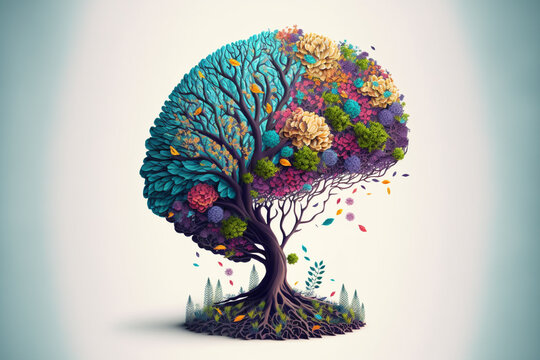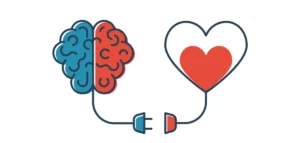
In our American culture of to-do lists, we rely on our brains to regulate our behaviors and get things done. It is easy to imagine ourselves as brains that exist in this world, forgetting that we are so much more. For one, we have bodies that hold richly complex information in the form of sensation, intuition, and emotion. Emotion is a type of intelligence that gives us insight into our internal world, a messenger of our conscious and unconscious needs and desires; emotion might be thought of as feedback from our holistic selves, a voice of alignment/misalignment across all of our parts, including our spiritual selves.
What is Emotional Intelligence?
Emotional intelligence is an empowering skillset for navigating the self through a life that is ever-changing. Emotional intelligence is often advertised in the workplace, yet is more than just the ability to manage emotions in professional settings; it embodies a deep understanding and acceptance of a person’s inner landscape. Rather than viewing emotions as uncomfortable obstacles to be suppressed or controlled, emotional intelligence invites individuals to explore feelings and their corresponding needs with vulnerability, openness, and nonjudgement; thus, emotional intelligence supports self-awareness, self-regulation, and self-actualization. Speaking from a place of heart-centered communication also encourages the cultivation of genuine connections with others.
Understanding Emotional Information

Below are some useful ways to conceptualize different emotions and the information they may be imparting, according to Karla McLaren (2010). These emotions and their “interpretations” are not exhaustive or conclusive, a reminder that deriving personal meaning is what matters. Emotions are tricky in that development and culture has a lot to do with how and when an individual feels, processes, and expresses them. Emotions are also complex, a person often feeling multiple at once. Listening to and discerning emotions requires self-compassionate awareness; a therapist may be able to assist in reflecting, naming, sorting, and understanding emotions.
Anger: Feeling anger can help set external boundaries around something valuable that needs to be protected. It may provide information about someone else’s behavior, initiating avoidance or healthy confrontation to address what needs to be safeguarded or restored.
Shame: The other side of the coin to anger is shame (anger towards self), arising to support the creation of internal boundaries and supporting a change in personal behavior to become more aligned with the authentic self.
Sadness/Grief: Sadness is an emotion that often communicates a need for social support. The feeling of sadness may be an indication of letting go of something and creating space for growth.
Fear/Anxiety: Fear may be a source of inner wisdom, an alertness arising from instincts that provides information to inspire nervous system activation and movement, such as an action that might need to be taken.
Happiness: Feelings related to happiness might signify that certain needs are currently being met. It is the guiding light toward making inner and outer worlds more congruent, the “yes” that motivates repeated behaviors. While happiness is sought out due to its restful and nourishing qualities, it is important to acknowledge the necessity of other emotions and the profound insights they offer.
Citation:
McLaren, K. (2010). The language of emotions: What your feelings are trying to tell you (Rev. ed. 2023). Sounds True.







